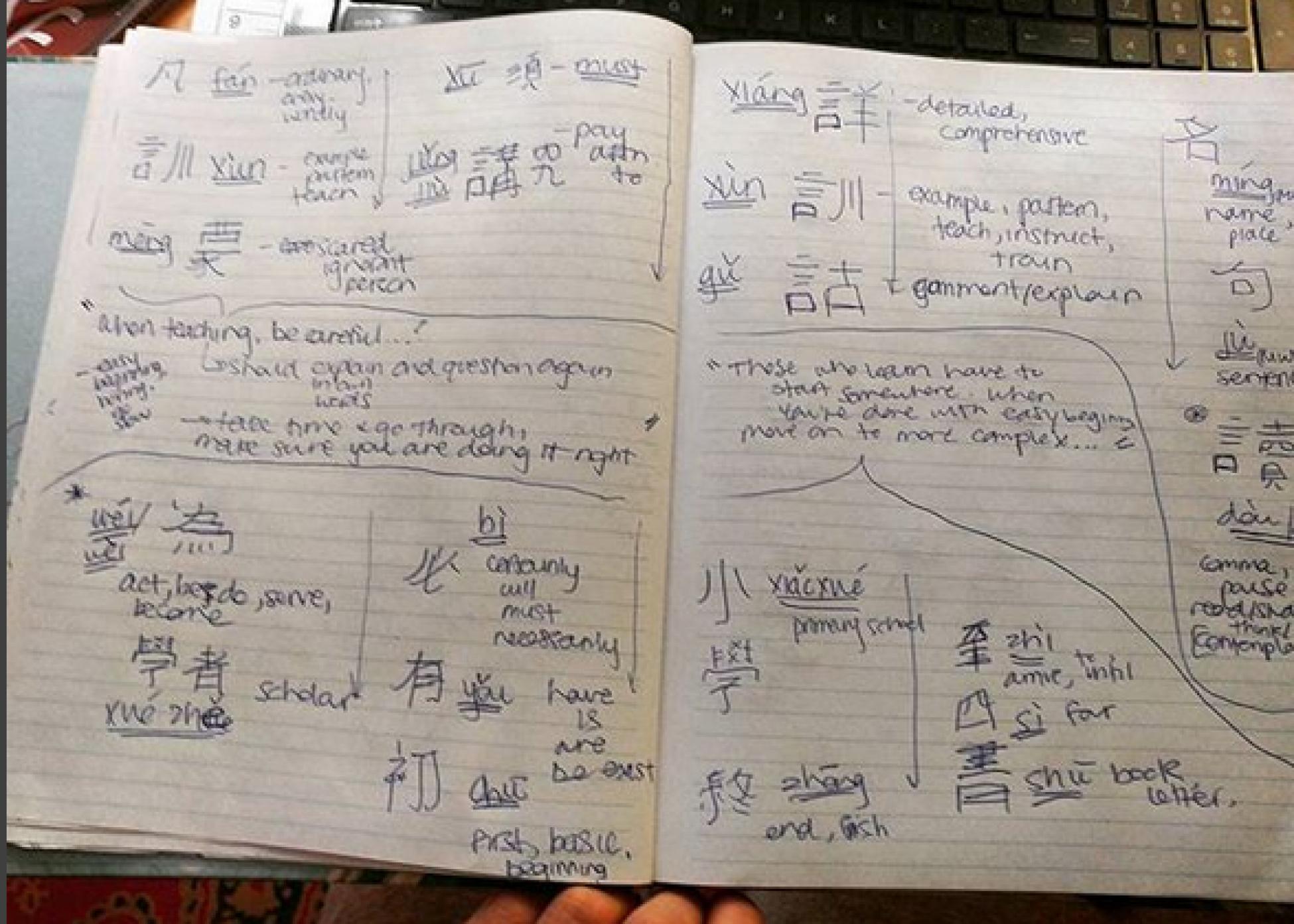In preparation for volunteering abroad, I have been teaching myself Mandarin for about five months now, and I am still a total beginner. After all, Chinese is one of the hardest languages to learn. However, I have found some ways to speed up the process and build associations more quickly and thoroughly.
Here are some suggestions that have helped me and will hopefully help you:
1. Be sure to take advantage of free language-learning apps such as Memrise, ChineseSkill and Pleco.
2. A general language learning rule is to prioritize learning what you will need to be using, like if you plan on only speaking to people abroad then focus on PinYin and tones and speaking Mandarin. If you want to focus on learning to read and gaining insight into character meanings, emphasize learning characters.
3. If you are studying characters, get to know each individual component of the character. The radical or the determinative; any significant peculiarities. This way, you will be able to recognize similar parts of different characters even in different contexts. Noticing similar parts and sounds can give you insight into word meaning.
4. It is important to have the grammatical structure of sentences down early on. It is like a blueprint for the words you will be learning later on. In Mandarin, you are going to be saying something like subject-verb-object (or just verb). For example, when someone asks you if you have eaten yet today, you might respond with chi, the word for “eat,” rather than “yes,” like you would say in English. You are affirming the verb that they have brought up.
5. Remember that characters are essentially pictures, or logograms (symbols that stand for a word or phrase). The language is very object-oriented and symbols usually represent the object as the culture knows, sees, and uses that object. If it helps, remember the meaning of the symbol by using the way it appears to you as a picture.
I am very interested in Asian Philosophy so I have been studying characters out of the Chinese texts San Zi Jing and Daodejing. This way, I have been able to gain knowledge regarding the cultural relevance of certain words and terms as well as learn different characters.
Remember to start small, take baby steps, and don’t get overwhelmed; Mandarin is very complicated, especially with the modern divide between simplified and traditional characters.
Add this article to your reading list




